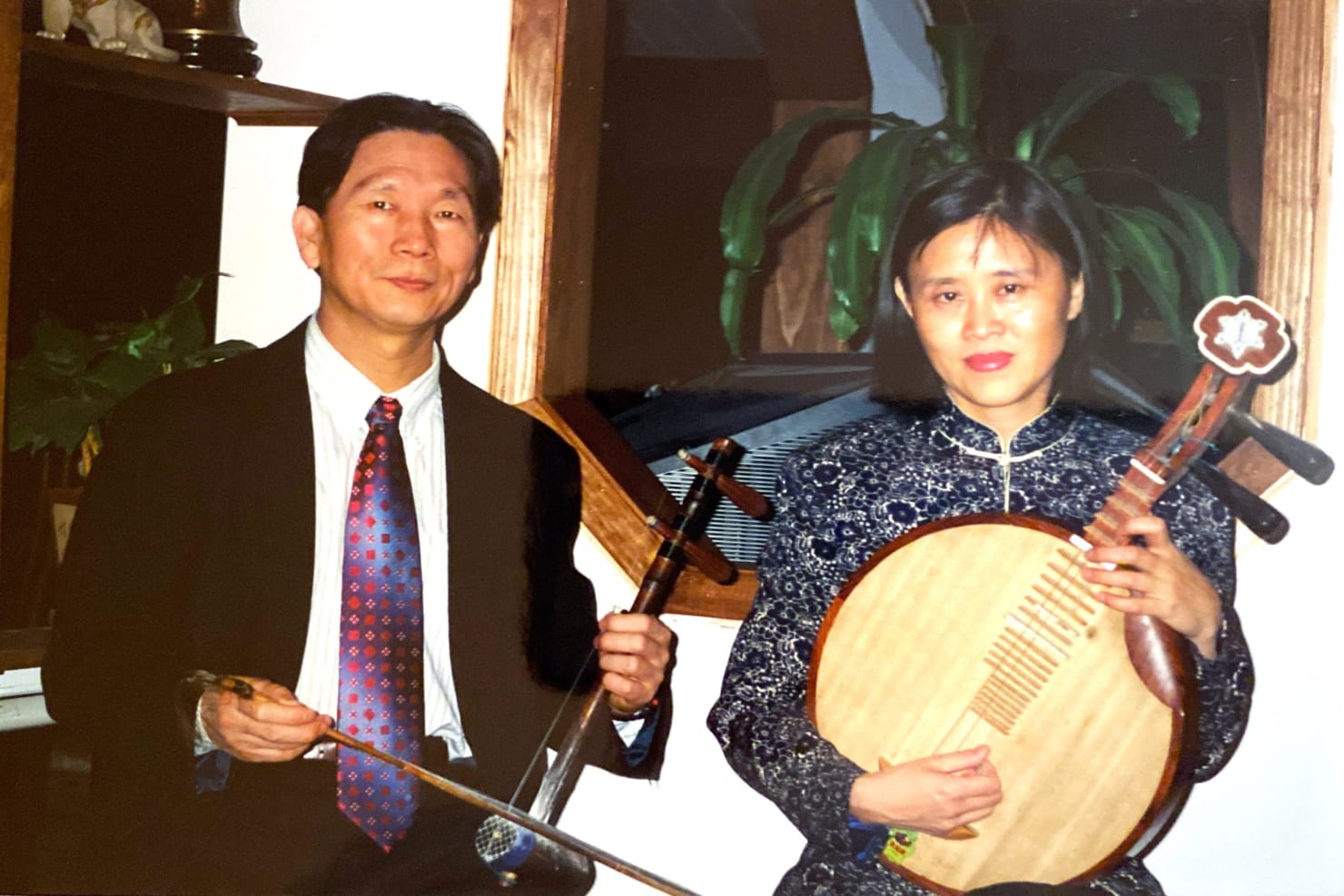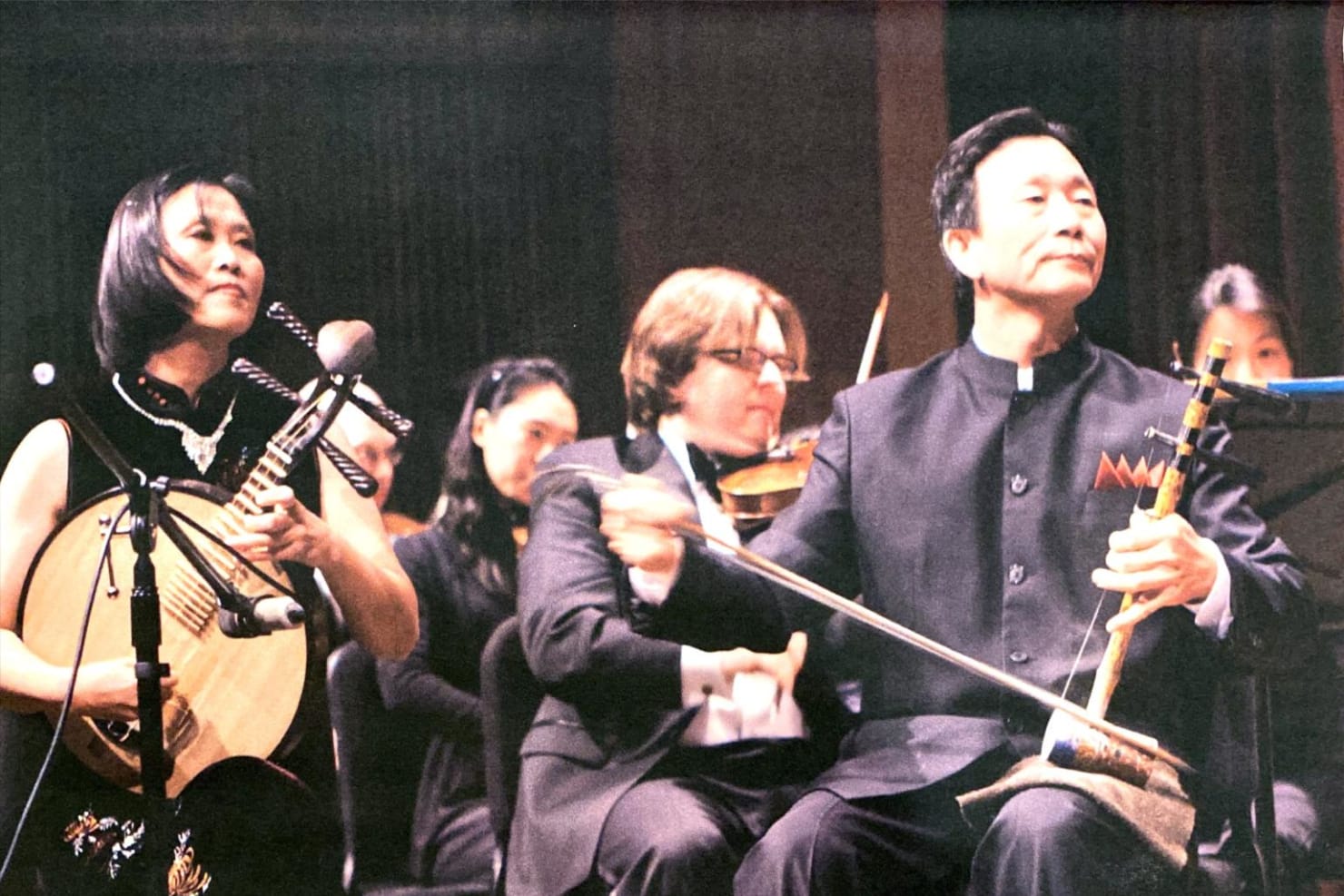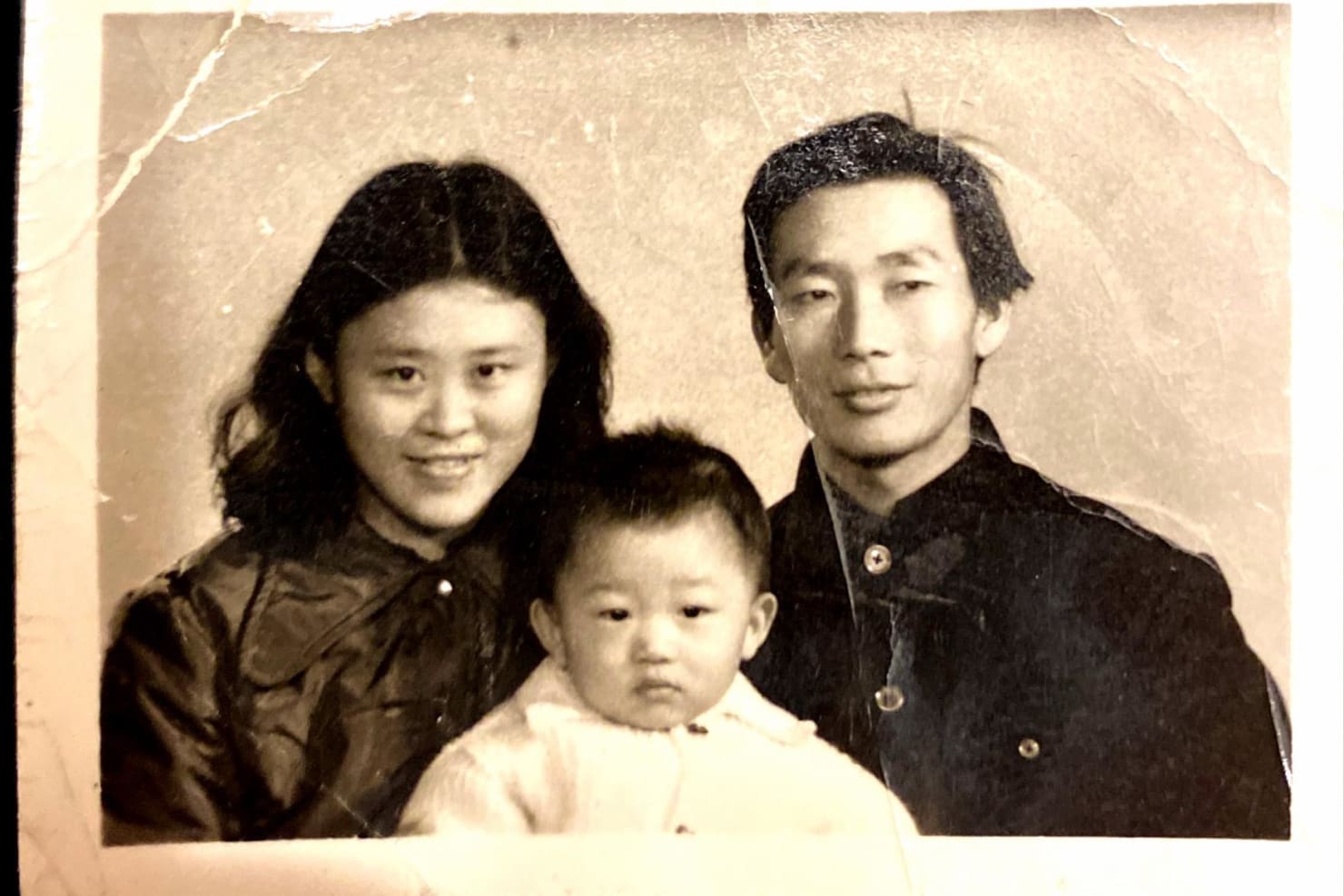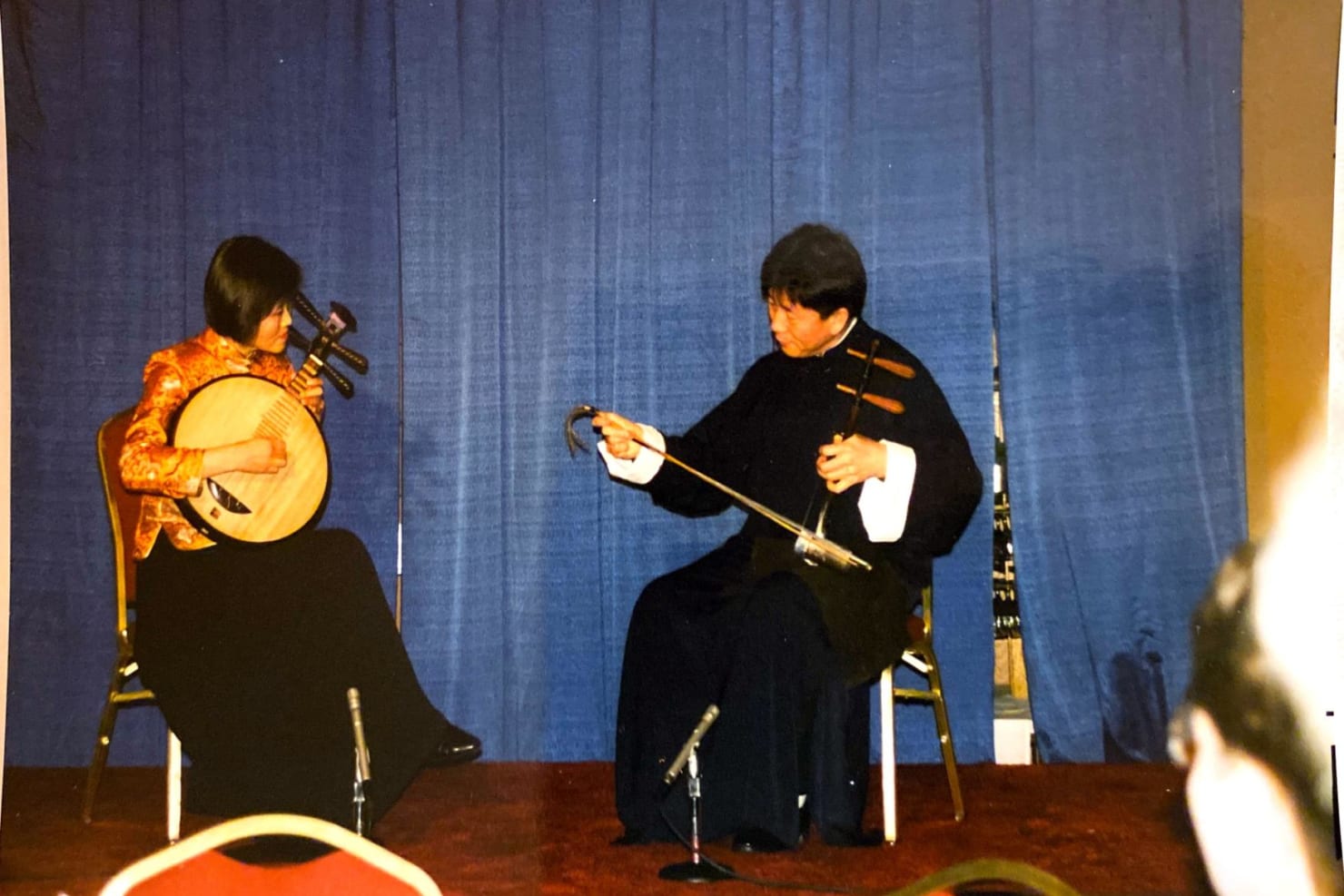Family, New Year Traditions and a Life in Music: An Interview with Fei Xie

“In China, the Lunar New Year vacation is about the most exciting time for kids–for all family members, really,” explains Minnesota Orchestra Principal Bassoon Fei Xie, who grew up in Tangshan in the northern Chinese Hebei province. “But for kids, it's a vacation where you really don't have to do much work. During summer vacation, you have homework, you have things you have to do. But for New Year’s, you just play–you hang out with your family, your friends and relatives.”
The Lunar New Year, sometimes known as Spring Festival, is celebrated across countries and cultures–from China to Vietnam to Korea to Singapore and beyond. It’s a time to reset, reconnect with loved ones, and to welcome in all that the New Year has to offer. In fact, traditions around this celebratory time aren’t unlike Western New Year celebrations–Xie explained his own family’s New Year’s Eve ritual: “Every year for New Year's Eve, the entire country watches a gala on television–it’s dancing, talk shows, performances, and it's usually about four hours,” Xie explained. “The whole family gathers and eats, and then we'll watch it together.”
This February 5 and 6, the Minnesota Orchestra presents a brand-new concert experience, one that Xie and his family were instrumental in helping to build. “When I came to the Orchestra [in 2017], I approached the artistic team,” he explained. “‘Have we thought about doing a Lunar New Year concert?’ There is a huge Chinese population, and a huge Hmong population, and many other Asian populations in the Twin Cities. We thought this would be a great opportunity for these people to have a place to celebrate their New Year–and for the people who do not celebrate the Lunar New Year, to have an opportunity to get to experience different cultures.”
Xie grew up the son of professional Peking Opera musicians–his father, Zhengang Xie, and his mother, Mei Hu, are jing hu and yue qin masters, respectively. These instruments, along with the pipa, are the traditional Chinese instruments that will be featured in front of the Orchestra as part of the Lunar New Year celebration. These concerts also mark the very first time Fei Xie will share the stage with his parents. We talked with him about his experience at the intersection of Chinese and Western music, his role in shaping these special concerts and his favorite family traditions for the Lunar New Year.
A Musical Family
As a child, Xie was surrounded by music–and it was his uncle who introduced him to his first instrument, the piano: “[My uncle] was majoring in composition, basically writing works that combined Western music with Peking Opera. So I started playing piano at three-and-a-half years old,” he explained. Xie and his family always knew he would go on to become more than a casual musician–music was in his blood, it seemed. At around 12 years old, he began his studies in Beijing and tried several instruments before finding the bassoon. “I was introduced to brass teachers, and they said, ‘Well, your set-up is not ideal for playing brass, but why don’t you go audition for woodwinds?’ And that’s how I was introduced to the bassoon.”
Before he started the tenor-range orchestral woodwind, however, Xie had already dipped his toe into his parents’ world of Peking Opera. “I think because I was so deep into learning piano–learning Western music–at that point it was very hard for me to understand Peking Opera. [My parents] actually tried to set me up with a role to sing in an opera.” It didn’t work out–but Xie and his parents have always shared a mutual respect for one another’s music. “I don't understand what they do, but because I've heard so much of it, I can tell what's good, I can start enjoying it,” he explained. “For them, [when I was younger], they'd seen my uncle practicing piano, they'd seen me practicing piano; they could understand and enjoy–and also monitor my progress.”
Where Musical Traditions Meet
There was an even deeper intersection between Western music and Peking Opera in his parents’ earlier careers, Xie explained: “I think it was the 1970s, during the Cultural Revolution, the Chinese government commissioned eight works [known as the Revolutionary Operas] that combine the traditional Peking Opera ensemble and Western orchestra. So they had seen Western orchestra, and they have had those experiences [of performing with orchestras] before.”
“Where I grew up, there weren’t many Western classical music concerts happening,” he continued. “So most of the time I was just practicing and listening to cassette tapes of music–there was a lot of Chinese pop music around. We lived in a high-rise, and the ground level had a market every morning. It was a morning market, the vendors sold cassette tapes and they’d start playing pop music at 7 in the morning!”
Xie would study bassoon in China until he came to the United States for training at Oberlin College and Rice University’s Shepherd School of Music–and though he didn’t grow up surrounded by Western orchestras, he maintains that there is universality in music: “No matter what kind of music it is, no matter where it's from, it's expression of emotion–you can relate.”
A Celebration for All
The exact time of the Lunar New Year celebrations vary–following the Lunar calendar, the dates of the festival span two weeks and land around late January or early February. This year’s Lunar New Year falls on February 1. Celebrations are generally marked by time off from work and school along with visits from family and friends. It’s a particularly exciting time of year for children–many favorite traditions are built around them: parents gift their children new clothes, which they wear on New Year’s Day to symbolize hopes for the year to come; elders gift children red envelopes filled with money for treats like toys and candy–but also for future educational expenses and other necessities. “We had to turn most of it back to our parents, but we got to keep some,” Xie noted about his favorite Lunar New Year memory. There are also fireworks, social gatherings, and lots of delicious food. Dumplings were the food that came to mind for Xie–in other parts of China, it is rice cakes that are the central celebratory dish.
In helping to build this concert with the Minnesota Orchestra’s artistic team, Xie hoped to create space for all who celebrate the Lunar New Year–and invite those who may be new into the fold. Audiences will have the opportunity to see instruments not often featured in front of the orchestra, including the bowed jing hu, the “moon guitar” yue qin, and the pear-shaped pipa. Xie and the artistic team worked together to program the concert and ensure that many different genres and cultures were represented in the music. They wanted audiences to see new instruments, to center performers not often celebrated in the United States, and even present a world premiere of Gao Hong’s Guangxi Impression for Pipa and Orchestra, with the composer herself as soloist.
But the work Xie is most excited to perform as part of this concert? “My parents’ piece [In the Dark Night by Wu Hua]. When I was in college, I heard them playing this piece. I just loved it–but I never had the chance to play with them. So this is the first time ever that I’ll be sharing the stage with my parents.”
Xie’s final words for would-be concert-goers and first-time celebrators of the Lunar New Year are simple: “Be prepared to enjoy all different flavors in this concert, and be prepared to see all these new instruments–just be curious.”
Related Articles

Meet the Musicians
Minnesota Orchestra Musicians Around Town
When Minnesota Orchestra musicians aren’t at Orchestra Hall, you can find many of them around the Twin Cities and beyond in other types of musical performances.

Meet the Musicians
A Q&A with Music Innovator Wordsmith

Meet the Musicians
Meet a Musician: Eric Sjostrom

Meet the Musicians
Musicians Shout Out Their Teachers

Meet the Musicians



